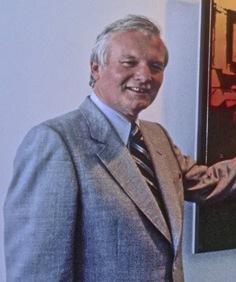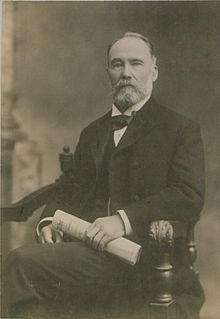Related Research Articles

The Canadian Alliance, formally the Canadian Reform Conservative Alliance, was a conservative and right-wing populist federal political party in Canada that existed from 2000 to 2003. The party was the successor to the Reform Party of Canada and inherited its position as the Official Opposition in the House of Commons of Canada and held it throughout its existence. The party supported policies that were both fiscally and socially conservative, seeking reduced government spending on social programs and reductions in taxation.

Stephen Joseph Harper is a Canadian economist, entrepreneur, and retired politician who served as the 22nd prime minister of Canada for nearly a decade, from February 6, 2006, to November 4, 2015. Harper has served as the leader of the International Democrat Union since February 2018.

David Robert Peterson, was the 20th Premier of the Province of Ontario, Canada, from June 26, 1985 to October 1, 1990. He was the first Liberal premier of Ontario in 42 years.

The Conservative Party of Canada, colloquially known as the Tories, is a right-of-centre federal political party in Canada. It was formed in 2003 from the merger of the Progressive Conservative Party of Canada and the Canadian Alliance. It traces its history to the original Conservative Party of Canada that was formed after Confederation in 1867 and changed its name to Progressive Conservative Party in 1942.

The Ontario New Democratic Party is a social-democratic political party in Ontario, Canada. The Ontario NDP, led by Andrea Horwath since March 2009, currently forms the Official Opposition in Ontario following the 2018 general election. It is a provincial section of the federal New Democratic Party. It was formed in October 1961 from the Co-operative Commonwealth Federation and the Ontario Federation of Labour (OFL).

Philip Francis Little was the first Premier of Newfoundland between 1855 and 1858. He was born in Charlottetown, Prince Edward Island. Little studied law there with Charles Young and was admitted to the bar in 1844.

William Grenville "Bill" Davis, is a Canadian former politician who served as the 18th Premier of Ontario from 1971 to 1985. Davis was first elected as the MPP for Peel in the 1959 provincial election where he was a backbencher in Leslie Frost's government. Under John Robarts, he was minister of education. He succeeded Robarts as Premier of Ontario and held the position until resigning in 1985.

Harry Corwin Nixon was a Canadian politician and briefly the 13th Premier of Ontario.
The United Farmers of Ontario (UFO) was an agrarian and populist provincial political party in Ontario, Canada. It was the Ontario provincial branch of the United Farmers movement of the early part of the 20th century.

Sir George William Ross was an educator and politician in the Canadian province of Ontario. He was the fifth Premier of Ontario from 1899 to 1905.
The Nova Scotia Liberal Party is a socially liberal, fiscally conservative political party in Nova Scotia, Canada. The party currently forms government in Nova Scotia, under the leadership of Premier Stephen McNeil. It has held power in the province since the 2013 election, and the current government led by Stephen McNeil was the first in Nova Scotia to win 2 consecutive majorities since the government of John Buchanan, after the victory in the 2017 Nova Scotia election.

Sir William Vallance Whiteway, was a politician and three time Premier of Newfoundland.

Sir Rodmond Palen Roblin, was a businessman and politician in Manitoba, Canada.

James Colledge Pope, was a land proprietor and politician on Prince Edward Island (PEI), Canada. He served as premier of the colony from 1865 to 1867, and from 1870 to 1872. He was premier of PEI in 1873 when the island joined Canadian confederation.

John Hamilton Gray, was a politician in the Province of New Brunswick, Canada, a jurist, and one of the Fathers of Confederation. He should not be confused with John Hamilton Gray, a Prince Edward Island politician in the same era.
Franklin Harford Spence was an Ontario pharmacist and political figure. He represented Fort William in the Legislative Assembly of Ontario from 1923 to 1934 and from 1937 to 1943 as a Conservative member. He defeated UFO-Labor cabinet minister Harry (Henry) Mills in the 1923 election, was re-elected in December 1926 and again in October 1929, chiefly because of the popularity of Ontario premier Howard Ferguson - "A vote for Spence is a vote for Ferguson," he advertised. He played a subordinate role to other Conservative party heavyweights from Northern Ontario, Donald McDonald Hogarth and Francis Henry Keefer. He was defeated by Liberal Joseph Edmund Crawford in the June 1934 election, but won the seat again in October 1937 when the Liberal vote split between the official candidate Harry Murphy and the Independent Liberal Crawford.

The Dominion Alliance for the Total Suppression of the Liquor Traffic was an organization established in 1877 in Canada that lobbied for prohibition of alcohol. Membership was largely Protestant and Anglophone. The Dominion Alliance faced passive resistance from politicians concerned about the views of their constituents, particularly in Quebec, but had some success at the local level. Sale of alcohol was prohibited provincially and then nationally during World War I (1914–18). After the war the national and provincial temperance laws were repealed and the Dominion Alliance faded into irrelevance.
The 1857 New Brunswick general elections happened less than a year after the 1856 elections. The new government of the colony, lead by John Hamilton Gray, had trouble passing bills because of its slim majority of one member. One of the government MLA had a tendency to abstain on most objects, resulting in ties and gridlocks. Eventually, the government lost a vote of confidence, and the colony held new elections. The elections resulted in a defeat for the government and a victory for the Liberal MLAs. After the election, Charles Fisher returned to power as premier of the colony for the second time. He did not re-enact the prohibition law that caused his government to fall less than a year earlier.
References
- ↑ Arndt, Ruth (Spence); Spence, F. S. (Francis Stephens) (1919). Prohibition in Canada; a memorial to Francis Stephens Spence. Robarts - University of Toronto. Toronto Ontario Branch of the Dominion Alliance. p. 81. Retrieved 21 February 2018.
| This elections in Canada-related article is a stub. You can help Wikipedia by expanding it. |